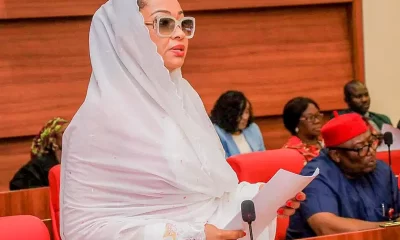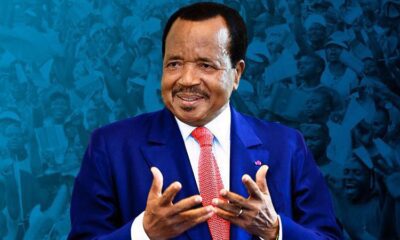Educational Issues
Time To Give Private School Teachers A Voice -By Aku Uche Henry Jr.
The statistics are damning: over 80% of private school teachers earn less than ₦70,000 monthly, and most face retirement without savings, pension, or security. In active service, they pay taxes. In retirement, they face poverty.

The story of Nigeria’s education system is one of ambition, reform, and recurring setbacks. A pivotal moment came in 1973, when a national seminar laid the groundwork for the Universal Primary Education (UPE) policy of 1976 ~ a bold promise of free and compulsory schooling for all Nigerian children.
Before then, missionary bodies dominated education, supported by government grants tied to enrollment and performance. The government’s takeover of schools in the mid-1970s sought to unify and standardize learning across the nation. But while the motive was noble, bureaucracy and inefficiency soon set in, leading to falling quality over time.
By the 1980s, the Structural Adjustment Programme (SAP) devastated public education further: funding collapsed, morale sank, and infrastructure decayed. Into this vacuum stepped private schools, initially welcomed for expanding access and innovation. Yet by the 1990s and early 2000s, Nigeria witnessed an explosion of poorly equipped “mushroom schools” that placed profit above pedagogy.
Throughout this evolution, unions shaped the education sector. The Nigeria Union of Teachers (NUT), founded in 1931, gave public school teachers a platform. Proprietors of private schools later formed the National Association of Proprietors of Private Schools (NAPPS) in 2005 to defend owners’ interests.
But what of the private school teachers themselves?
Despite being millions strong ~forming the backbone of Nigeria’s education workforce ~ they remain voiceless. Unlike artisans, market women, or even transport workers who wield organized bargaining power, private school teachers have no recognized or credible union.
This silence has enabled widespread abuse:
Absurd or non-existent contracts,Salaries far below the national minimum wage, Arbitrary dismissals, No pay during term breaks (even while teachers continue preparing lesson notes and curricula), Virtually no pensions, gratuities, or career paths!
The statistics are damning: over 80% of private school teachers earn less than ₦70,000 monthly, and most face retirement without savings, pension, or security. In active service, they pay taxes. In retirement, they face poverty.
The Way Forward? Reform is Possible.
Not all private schools exploit their teachers. Many genuinely struggle to balance costs with quality. But financial constraints are no excuse for regulatory silence. If government can enforce taxes on private schools with ease, then it can ~ and must ~ enforce the compulsory Pension Reform Act (PRA 2014) and basic labor protections with equal energy.
Here are two urgent reforms I strongly recommend the Federal Government consider:
1. Introduce a transparent tier system, displayed on every school signboard:
Tier 1 – Standard Schools: Meet all minimum standards (fair pay, pension, contracts, benefits). Eligible for tax incentives, development funds, and PPP programs.
Tier 2 ~ Developing Schools: Making progress but not yet fully compliant. Eligible for targeted grants and low-interest loans.
Tier 3 ~ Emergent Schools: Newly established, under probation with advisory support.
This system would drive accountability while rewarding compliance.
2. Formation of the Association of Private School Teachers of Nigeria (APSTON)
Private school teachers urgently need a recognized platform. A union is not about creating disorder; it is about structure, accountability, and professional dignity. With APSTON, teachers could negotiate fair contracts, access professional development, and engage policymakers.
Education is Nigeria’s most powerful weapon for national transformation. But that weapon is being blunted by the neglect of those who wield it.
We cannot talk about revamping education while ignoring the millions of teachers who carry the system on their backs without contracts, pensions, or fair pay. A national dialogue must begin now ~ not just about policy, but about justice.
Teachers in private schools deserve a voice. They deserve dignity. They deserve protection under the law. Anything less is a betrayal of the future we claim to be building. A situation where millions of our educators give their best years in penury and retire into abject poverty and lack is absurd, starkly abysmal and totally ungodly!
Aku, UCHE Henry Jr
(A Passionate Private School Teacher)
Port Harcourt, Rivers State
Tell: 09060932973
Facebook: https://www.facebook.com/share/14LZdCF7Dvb/
Aku Uche Henry Jr. is a private school teacher, education consultant and advocate based in Port Harcourt. He writes on labor rights, education policy, and social justice.










